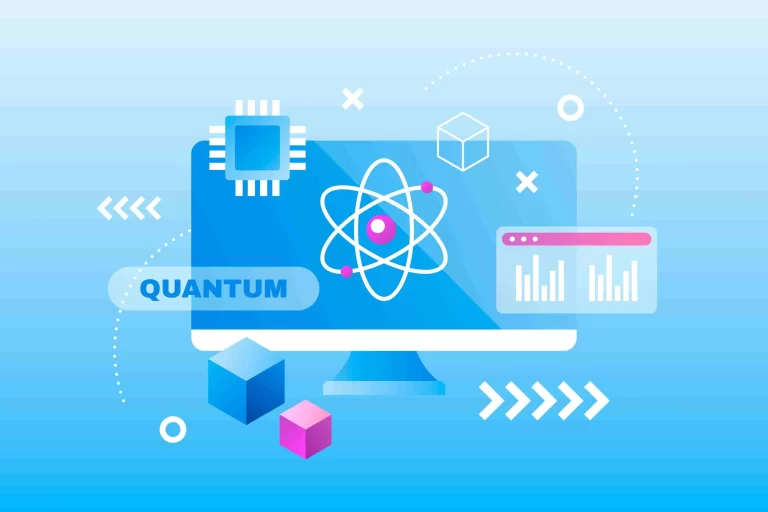Unleashing the Potential of 5G Technology: A Path to a Thriving Career
The fifth generation of wireless technology, or 5G, is creating a stir in the IT community and promises to revolutionize how we connect, communicate, and innovate.
It is the replacement for 4G LTE and it promises to completely change how we use the internet. 5G outperforms 4G in terms of speed, dependability, and latency. 5G also uses in telecommunication, cyber security, cloud computing and much more fields. This indicates that it will be able to accommodate novel and creative applications that were previously impractical.
What is 5G technology?
A new wireless standard called 5G makes use of several different technologies. It’s essential to comprehend what 5G is and how it varies from previous generations in order to fully appreciate its significance. Fundamentally, 5G refers to the fifth generation of wireless technology for mobile networks. It was developed to outperform 4G LTE in terms of data throughput, latency, connectivity, and reliability.
The following are some of the important technologies used in 5G:
Lightning-Fast Speeds:
5G’s extraordinary speed is arguably its most prominent characteristic. While 5G networks can deliver speeds of up to 10 Gbps, 4G networks can only deliver rates of up to 100 Mbps (megabits per second). Smooth 4K and even 8K video streaming, high-definition gaming, and quick downloads are all made possible by this quantum leap in speed.
Low Latency:
The time it takes to transmit and receive a request is significantly shortened in 5G. It is capable of achieving latency as little as 1 millisecond (ms). For applications that demand real-time interactions, like driverless vehicles, remote surgery, and augmented reality experiences, such low latency is a game- changer.
Massive Capacity:
5G networks are designed to serve numerous devices at once. As we embrace the Internet of Things (IoT), where many sensors and gadgets demand seamless and dependable connectivity, this is especially important.
Consistency and Reliability:
5G technology is intended to be extremely consistent and reliable, ensuring continuous connectivity even in difficult conditions. For mission-critical applications like remote industrial control systems and emergency services, this reliability is crucial.
Network Slicing:
One special attribute of 5G is network slicing, which enables operators to build virtual networks tailored to particular services or applications. By dynamically allocating resources, each program is given the performance it needs.
The 5G Network’s Infrastructure
Putting 5G technology into use requires a complex infrastructure:
Small Cells:
A network of tiny base stations known as small cells, which are dispersed throughout urban areas, is what makes 5G possible. Together, these cells may offer comprehensive coverage with great capacity.
Millimeter Waves:
5G transmits data using higher-frequency radio waves, frequently in the millimeter wave (mmWave) range. Although these waves have a smaller range and a larger bandwidth, the need for more tiny cells is still present.
Massive MIMO:
In order to support many devices at once, 5G has improved Multiple Input, Multiple Output (MIMO) technology. Massive MIMO transmits and receives data effectively by employing a large number of antennas.
Network slicing:
With the help of this technology, mobile operators can build several virtual networks on their infrastructure that can serve various types of traffic with various needs.

Why Choose 5G Technology?
More than just its technological features, 5G technology is alluring. Here are some strong arguments for considering a career in this fascinating area:
Faster speeds:
5G is capable of 10 Gbps download and upload speeds, which is a huge improvement above 4G LTE. This entails that you can stream high-definition video without any latency and download movies and TV shows in a matter of seconds.
Lower latency:
Compared to 4G LTE, 5G offers a substantially lower latency, only a few milliseconds. This implies that there will be reduced lag when you use online programs and games.
Greater capacity:
5G supports a far larger number of devices than 4G LTE. This implies that even in crowded settings like stadiums and concerts, you will be able to access the internet.
New and innovative applications:
5G will make it feasible to use new and innovative apps that were previously impossible. For instance, 5G will make it possible to operate autonomous vehicles, conduct remote surgery, and power smart cities.This industry offers countless options for discovery if you enjoy using your ideas and solving problems.
Breaking New Ground in Technology:
Similar to how 4G opened the door for smartphones and mobile apps, 5G technology is at the forefront of a technological revolution. By working in this industry, you actively contribute to changing the way that the digital world will look in the future.
Supporting Emerging Technologies:
Emerging technologies including augmented reality (AR), virtual reality (VR), and the Internet of Things (IoT) are built on top of 5G. 5G provides a rich environment for research and development if you’re driven to push the limits of innovation.
Abundant Career Opportunities:
A wide spectrum of skills, from engineers and network architects to cybersecurity experts and data scientists, are required for the deployment and upkeep of 5G networks. The 5G ecosystem has a growing need for skilled workers, which makes it a desirable industry for career advancement.
Global Influence:
Global industry revolutionization is a possibility with 5G. No matter the industry—healthcare, transportation, agriculture, or entertainment—5G technology will have a significant influence and present a chance to help address some of the most important problems facing the planet.
Career Opportunities in 5G Technology:
By 2028, the worldwide 5G market is anticipated to grow to $1.3 trillion. A brand-new and innovative technology called 5G has the potential to completely change how we use the internet. It is superior to 4G LTE in terms of speed, dependability, and latency. This indicates that it will be able to accommodate novel and creative applications that were previously impractical.
A lot of competent personnel are needed because the 5G business is expanding quickly. Here are some further specifics regarding the 5G market and potential job paths:
Network Engineers:
When it comes to building, installing, and sustaining 5G networks, network engineers are essential. They are in charge of making sure the network runs effectively, securely, and at peak performance levels.
Software Developers:
Software developers who focus on 5G produce programs and services that take use of the networks’ fast data rates and low latency. This involves creating IoT, AR, VR, and other application-related applications.
Cybersecurity Experts:
The necessity for cybersecurity professionals to protect 5G networks from online threats grows as these networks become more commonplace. Professionals in cybersecurity work to defend infrastructure and data from potential threats.
Data analysts and scientists:
The massive volumes of data created by 5G networks are used by data scientists and analysts to gain insights, improve network performance, and create predictive models for a variety of applications.
Hardware Engineers:
The physical devices and parts that make up the 5G infrastructure, like as antennas, base stations, and mobile devices, are designed and developed by hardware engineers.
Experts in AI and machine learning:
Since these technologies are utilized to improve user experiences, automate procedures, and optimize network performance, AI and machine learning specialists are in high demand in the 5G industry.
Experts in IoT:
IoT experts are required to design and manage the networked devices and sensors dependent on 5G connectivity as the Internet of Things expands.
Policy and Regulation in Telecommunications:
To ensure that 5G rollout policies and regulations adhere to moral and ethical norms, experts in this sector work on shaping them.
Technicians:
5G equipment is installed and maintained by technicians. They investigate 5G network issues as well.
Sales representatives:
Salespeople offer 5G services to clients in the corporate and consumer sectors. Additionally, they inform clients of the advantages of 5G.
Customer support agents:
Customer support agents assist consumers in troubleshooting 5G service issues. They also respond to inquiries on 5G and its characteristics.

Here also briefly describe about 5G Technology.
If you are interested in a career in 5G, there are a few things you can do to prepare yourself:
- Receive a computer science or engineering degree. This will give you the technical skills you need to work in the 5G industry.
- Obtain 5G networking certification. There are numerous accessible 5G networking certifications. Obtaining certification will demonstrate to prospective employers that you have the abilities required to work in the 5G business.
- Develop your telecommunications industry expertise. Even if it isn’t explicitly in 5G, any expertise you can obtain in the telecom sector will be useful. You will gain a deeper grasp of the industry’s operations and its difficulties as a result.
Summary:
A significant improvement in connectivity and communication abilities is represented by 5G technology. It opens up a world of opportunities for innovation and transformation across a variety of industries thanks to its astonishing speed, negligible latency, enormous capacity, and adaptability.
A career in 5G technology requires entering a dynamic, quickly changing industry that is rife with potential for change-making and growth. Those that set out on this adventure will find themselves at the forefront of a technological revolution, impacting the future in ways that are still unthinkable as the world embraces the possibilities of 5G.






